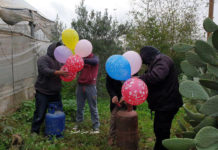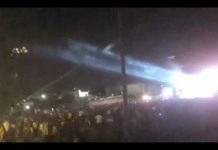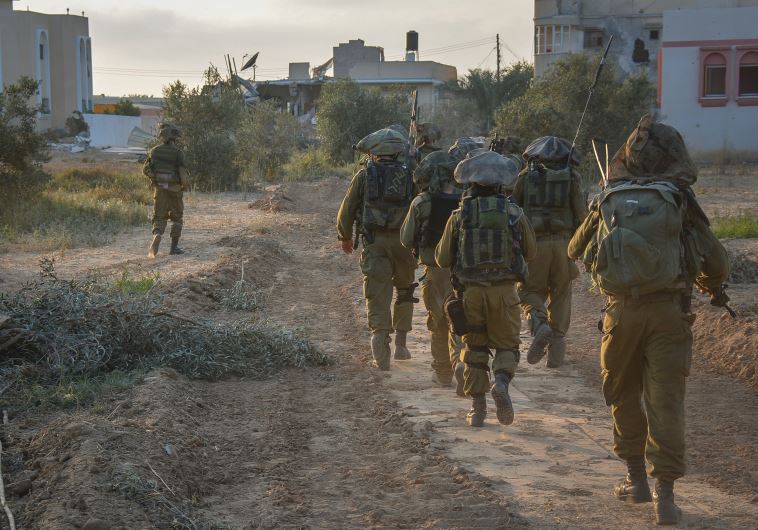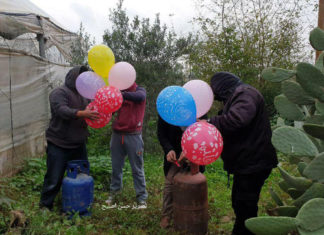Bullet points of key issues in the 200-page United Nations Human Rights Council commission of inquiry on last summer’s conflict between Israel and Hamas.
Photo by: IDF SPOKESMAN’S UNIT
|
• Command responsibility: All four IDF reports of alleged war crimes investigations have assumed that general targeting policy was legal and only individual soldiers could have gone beyond the rules of engagement. The report wants investigations of top military and civilian leaders who set targeting policy. This is a major fault line, but Israel has support from a range of foreign military and top academics for its targeting policy. • Comptroller got more relevant: Judge Mary McGowan Davis is following the State Comptroller report on war policymaking to see if it addresses her concerns not addressed in the IDF reports. That report just got a lot more important. • Turkel Commission: The report and McGowan Davis hone in on the lack of implementing Recommendation 2 of Israel’s quasi-government February 2013 Turkel Report on whether its self-investigation satisfies international law. She totally skipped over its conclusion that Israel’s apparatus meets those requirements and zoned in only on the 18 recommendations made by Turkel to improve investigations that have not been implemented. The state has been very slow to address some of these and this could be an issue since it was an Israel-sponsored group. • Gaza is occupied: Despite the 2005 Gaza disengagement, the report continues the general UN view that Gaza is de facto occupied based on the idea that Israel exercises effective military control over Gaza’s airspace, maritime waters and can quickly exercise its military power over the Strip. Like past reports, it heavily downplays the fact that Gaza shares a border with Egypt; though its border crossing is currently significantly closed, it has, at times, been far more open. • Gaza Blockade: The report repeatedly takes Israel to task for the blockade, though the previous UN Palmer Report said the blockade did not violate international law. Serious blame for lack of Gaza reconstruction was placed on Israel because of blockade, seemingly ignoring the blame many UN officials have placed on donor countries for failing to send most of the funds they promised for reconstruction. • Accepting ICC jurisdiction: The report demands that Israel accede to the Rome Statute and accept International Criminal Court jurisdiction – a non-starter from the Israeli point of view. • Explosive weapons: McGowan Davis makes a huge point of attacking Israel for the use of explosive weapons in those parts of Gaza that are densely populated. But that is most of Gaza, and the IDF has said Hamas intentionally and systematically abused civilian locations to fire rockets, hide weapons and undertake attacks. The report does not seem to consider how else the IDF could fight Hamas under these circumstances. • Defining military objectives – targeting residential buildings: There is a debate about whether the IDF had an overly wide definition of military objective, especially in targeting residential buildings. The report then recognizes that Hamas fought from civilian areas, which could convert those areas into military objectives, but confusingly seemed to say that Hamas’s actions do not modify the legal analysis or obligations of the IDF. • Warnings: The report unequivocally declares “roof-knocking” – the practice of firing a missile without a warhead onto a roof so it will not explode but rather make a loud bang and scare civilians into evacuating before attacking with an armed missile – as ineffective. The Goldstone Report made the same declaration but, whereas there are many international critics of the policy, many foreign military figures and top military law academics have declared the tactic effective, even cutting- edge and worthy of emulation. • Israeli investigations of alleged war crimes: McGowan Davis is highly specific, demanding not only investigations, but essentially also indictments, convictions and even sufficiently serious punishments. • Palestinian investigations of alleged war crimes: McGowan Davis only demands that there be criminal proceedings with nowhere near the same specificity. This could be a more lenient hand and double-standard or, in light of her harsh condemnation of indiscriminate Gazan rocket fire, it could be she realizes they have done nothing and nuanced demands only have a chance with Israel. • IDF release of classified information: The IDF has been complimented by supporters for releasing unprecedented information in its four reports about the military situation on the ground. The report, however, said too little information has been released and, while realizing the IDF may jeopardize its intelligence sources, essentially demands that it release far more information. This is a major fault line for judging borderline cases in which civilians were killed. • Proportionality: McGowan Davis seems to imply that the IDF was obligated to completely change its targeting policy, including possibly refraining from the use of missiles and artillery mid-war, after initial casualty reports. This is another major fault line and, whereas she cites one case from an international war crimes tribunal supporting that idea, there are counter-cases. • Little analysis of IDF attacks on hospitals, mosques, schools: The report surprisingly focuses little on IDF attacks on hospitals, mosques and schools. At one point, it explains that the focus was more on IDF attacks on residences because that was more of a new phenomenon and that attacks on hospitals, mosques and schools were a repeat of past wars. However, the report also appears to more seriously accept the Israeli narrative of Hamas using these civilian locations for fighting and may focus on attacks on civilian residences, viewing it as a weaker point for the IDF due to the volume of civilian residences hit. • Was Israel’s report of last week referenced: It was unclear whether the report would take into account Israel’s major report released last week and various prior released IDf reports since Israel did not officially cooperate with the Commission of Inquiry. The report did add references to that report and numerous references to the IDF reports, though the reports disagree on a myriad of issues. Article Source- http://www.jpost.com/landedpages/printarticle.aspx?id=406778 |











